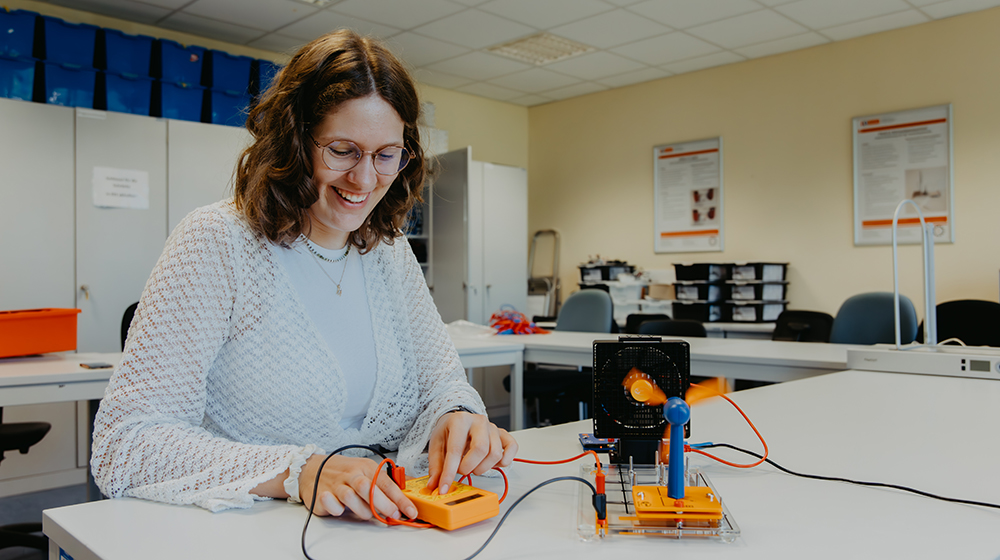
How is data transmitted in wireless networks, why are solar cells made from silicon and: how exactly does energy generation actually work? Practical technology lessons no longer take place at many schools in the state - at grammar schools they often don't even exist. In order to awaken young people's interest in technology and a deeper understanding of applied natural sciences, student teachers at the University of Magdeburg are involved in the "SchülerLabor Technik" project, or SchüLaTech for short.
Madlen Moritz is one of these students. She is in her 8th semester of a Bachelor's degree in Vocational and Educational Studies with a focus on technical education and sport at the University of Magdeburg. In addition to her studies, she has also been working at SchüLaTech for three years now and inspires pupils in years 5 to 10 with practical teaching concepts for the diverse world of technology. Here she shows how machines can be operated using simple programming commands and how natural phenomena such as ultrasound can be transferred to technical issues. Although the programme cannot replace technology lessons at school, it can supplement and expand them. "Many schools simply don't have the technical facilities that we have at university," explains the 22-year-old.
Build your own Lego robot
The 90-minute teaching units led by the students begin with a brief theoretical introduction to the respective topic. Afterwards, the pupils are largely allowed to become active themselves, for example building Lego robots or programming a wire cutter for polystyrene. "We don't do frontal teaching and lecturing, but first and foremost want to inspire. The pupils should enjoy discovering technology," says Madlen Moritz. She particularly enjoys witnessing the enthusiasm of the pupils. "Especially when they build things themselves or carry out experiments, the enthusiasm afterwards is great," she says. The feedback from the teachers and pupils is also very positive. According to Madlen Moritz, working in the student lab is a great enrichment for her: "It's a great addition to my studies because I can try out teaching concepts directly with the students. It has also really boosted my self-confidence," says the student. Madlen often hears from young girls in particular: "I can't do technology anyway". The aim of SchüLaTech is to prove exactly the opposite: "We want to show that everyone is capable and that technology can be fun," reports Madlen Moritz.
